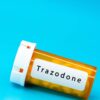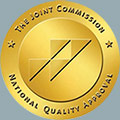Substance use disorder (SUD), also known as addiction, is listed in the Diagnostic and Statistical Manual of Mental Disorders, Fifth Edition (DSM-5).
According to the American Psychiatric Association, substance use disorder is a “complex condition in which there is uncontrolled use of substance despite harmful consequence.” The National Institutes of Health (NIH) assert that nearly half of the people “who have a mental [health] disorder will also have a substance use disorder at some point in their lives and vice versa.” When an individual is diagnosed with substance use disorder and another co-occurring mental health illness it is referred to as a dual diagnosis. The 2017 National Survey on Drug Use and Health found approximately 8.1 percent of individuals in the United States are living with mental illness and substance use disorder. This amounts to more than 8.5 million Americans who were found to have both a substance use disorder and mental illness.
Treatment
Many people who suffer from co-occurring disorders will have unique needs when it comes to their treatment and recovery process. For some people a mental illness results in a substance abuse disorder to self-medicate unwanted symptoms associated with a mental illness. For others, substance abuse causes the symptoms of a mental illness and once enough sobriety and stabilization has been achieved mental illness no longer presents as a primary issue. An individual struggling with both addiction and another mental health disorder is advised to seek specialized treatment support in the form of treatment for individuals with a dual diagnosis.
The treatment process for a dual diagnosis requires expert collaboration between psychiatry and addiction specialists to oversee an accurate assessment and develop an effective, nuanced treatment plan. The dual diagnosis treatment process is long-term, often lasting between six to twelve months, and is iterative, in terms of monitoring and treating evolving symptoms both with medication and psychotherapy. A tailored treatment plan that is developed for everyone attending a dual diagnosis treatment center will provide him or her with the tools to manage the symptoms associated with a specific mental health ailment while abstaining from the use of drugs and/ or alcohol.
Dual diagnosis treatment programs are designed to support an individual through his or her treatment with dual foci. It is essential to address and treat one’s substance abuse issues concurrently with the treatment of his or her mental health disorder. The co morbid mental disorders contribute to one another, and treatment for one should not be prioritized over the other. Proper support will provide an individual with the highest potential for a successful recovery.
For Information and Support
Contemplating detox can be a very challenging time. Before any individual can begin to work on the underlying issues contributing to their substance abuse problem, they must be separated from the substances in their systems. If you are concerned for yourself or a loved one regarding substance abuse, and/ or addiction we recommend reaching out for help as soon as possible. The earlier you seek support, the sooner you and your loved ones can return to leading happy, healthy, and fulfilling lives. Sherwood Detox offers a stand-alone detox program. For additional information on detox, please do not hesitate to contact us at: 818-626-9959 or feel free to email us anytime. One of our trusted counselors is available to talk and discuss how we can best support you on your journey.









